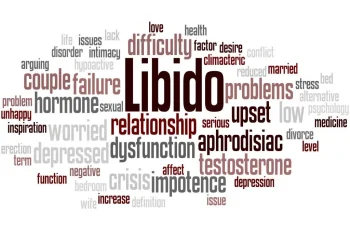Ad Blocker Detected
Our website is made possible by displaying online advertisements to our visitors. Please consider supporting us by disabling your ad blocker.
Introduction to Genital Warts and HPV
Genital warts, a prevalent sexually transmitted infection (STI), are caused by the human papillomavirus (HPV). HPV is widespread, with nearly all sexually active individuals contracting it at some point. Low-risk HPV strains, such as types 6 and 11, cause genital warts but are unlikely to lead to cancer. High-risk strains, however, may cause cervical or other cancers if untreated. HPV spreads through sexual activity, including vaginal, anal, or oral sex, and skin-to-skin contact, even without visible warts. Vaccination, such as the Gardasil vaccine, significantly reduces the risk of HPV infection and genital warts. Untreated genital warts can lead to complications, including fertility issues in severe cases, making early intervention critical.

Symptoms of Genital Warts
Genital warts present varied symptoms depending on HPV type and location. In females, warts may appear on the vulva, vaginal walls, external genitalia, anus, anal canal, or cervix. In males, they typically occur on the penis tip, scrotum, or anus. Warts can also develop in the mouth or throat from oral sex. Symptoms include:
- Small, flat, or cauliflower-like growths, sometimes invisible.
- Flesh-colored, brown, or pink swellings in the genital area.
- Itching, discomfort, or pain in affected areas.
- Bleeding during intercourse.
Over 40 HPV strains affect the genital region, and transmission is possible even without visible symptoms, emphasizing the importance of regular screenings and safe sexual practices.
Risk Factors and Prevention
Risk factors for HPV and genital warts include multiple sexual partners, unprotected sex, and a weakened immune system. Preventive measures include:
- HPV vaccination, ideally before sexual activity begins.
- Consistent condom use, though it does not fully prevent skin-to-skin transmission.
- Regular STI screenings for early detection.
- Limiting sexual partners to reduce exposure risk.
Education and awareness about HPV transmission are vital for reducing infection rates.
Herbal Remedies for Genital Warts
While conventional treatments are standard, herbal remedies are often explored for genital warts, though many lack robust scientific evidence. Below are commonly considered options:
Tea Tree Oil
Tea tree oil, derived from Melaleuca, has antimicrobial properties. Limited studies suggest benefits for skin conditions, but evidence for genital warts is inconclusive. Dilute 1 drop of tea tree oil with 1-2 drops of carrier oil (e.g., almond or coconut) before applying to warts to avoid burning or inflammation. Perform a patch test to check for allergies. Use topically only; avoid oral or vaginal application.
Witch Hazel
Witch hazel, known for its astringent and anti-inflammatory properties, may reduce discomfort and shrink wart tissue. Limited evidence suggests antiviral effects against certain HPV strains, but more research is needed. Apply witch hazel extract to affected areas with a cotton pad.
Apple Cider Vinegar
Apple cider vinegar’s acidity may combat viruses, but scientific support for genital warts is lacking. Soak a cotton ball in diluted vinegar and apply to warts for a few minutes daily. Avoid prolonged use to prevent skin irritation.
Garlic
Some studies indicate garlic extract has antiviral properties effective against warts. Apply garlic extract or a garlic-oil mixture to warts using gauze or cotton, securing it overnight. Rinse thoroughly in the morning.
Green Tea Extract
Green tea extract, available as prescription ointment (Sinecatechins/Veregen), is proven effective for external genital and anal warts. For non-prescription use, mix a few drops with carrier oil and apply to warts.
Castor Oil
Castor oil’s antimicrobial and anti-inflammatory properties may aid wart treatment, though research is limited. Apply a thin layer overnight and wash off in the morning to minimize irritation.
Olive Oil
Olive oil may disrupt viral replication, but no studies confirm its efficacy for genital warts. Apply sparingly to affected areas as a moisturizing adjunct to other treatments.
Fig Leaf Extract
Fig leaf sap, rich in flavonoids, has potent antiviral properties. While not proven for genital warts, apply the milky sap from a broken leaf twice daily for potential benefits.
Dandelion Sap–
Dandelion sap contains phytochemicals that may inhibit viral growth, per limited studies. Apply the milky sap from stems or roots to warts twice daily for at least a week.
Conventional Treatments
Permanent eradication of HPV-related genital warts is challenging due to recurrence. Standard treatments include:
- Imiquimod: Boosts immune response to fight warts.
- Podophyllin/Podofilox: Destroys wart tissue.
- Sinecatechins: Green tea extract-based ointment.
- Trichloroacetic Acid: Chemically burns warts.
- Surgical Options: Excision, cryotherapy, or laser removal for large or resistant warts.
Consult a healthcare provider to determine the best treatment plan, especially for persistent or severe cases.

Conclusion
Genital warts, caused by HPV, are a common STI with varied symptoms and treatment options. Herbal remedies like tea tree oil, witch hazel, and green tea extract may alleviate symptoms, but most lack strong scientific backing for eliminating warts. Conventional treatments, including topical medications and surgery, remain the most effective. Vaccination and safe sexual practices are key for prevention. If symptoms persist, seek medical advice for proper management. Ongoing research is needed to validate herbal remedies and improve HPV treatment outcomes.



